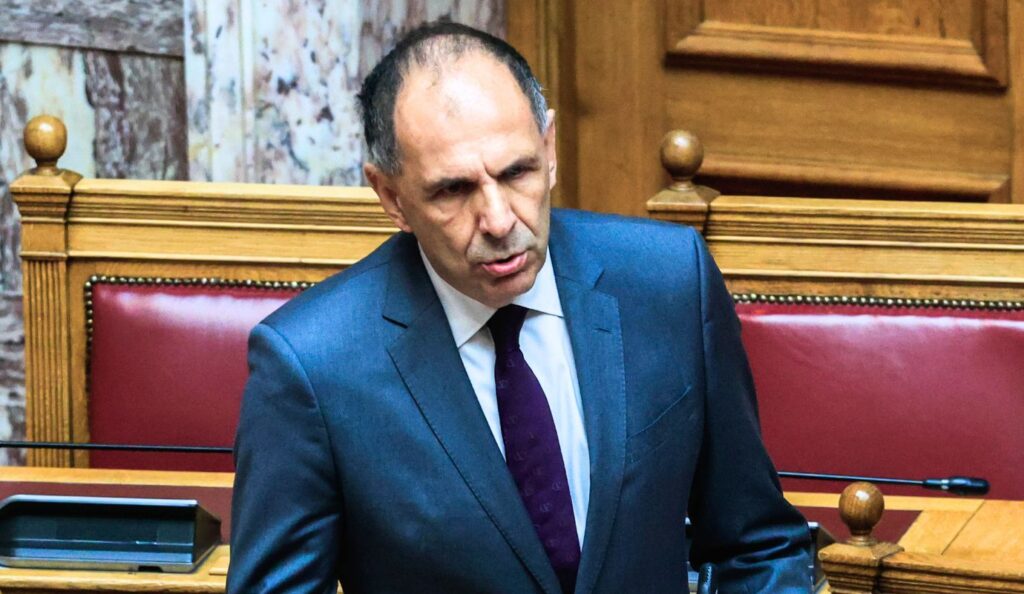Members of the Parliamentary Committee on Foreign Affairs and Defense are expected to be briefed today by Foreign Minister Giorgos Gerapetritis. According to the schedule, the committee meeting concerns developments in the Middle East, however diplomatic sources estimate that the largest portion will be occupied by issues related to Greece’s crisis with Libya.
The Foreign Minister will inform committee members about his upcoming visit to Libya, which is scheduled for the coming days (with Sunday as the likely date). Mr. Gerapetritis’s trip aims to reduce diplomatic tension between Athens and Benghazi, while he will also travel to the western side of Libya, seeking contacts with officials from the Tripoli government. The ultimate goal is to prevent ratification of the illegal Turkish-Libyan memorandum by the House of Representatives and to conduct dialogue on the delimitation of maritime zones.
The climate, however, does not favor Greek aspirations, as the extent of Turkey’s influence on General Haftar’s government is revealed daily. Yesterday, the Turkish Ministry of Defense revealed that on Tuesday, three military delegations connected to Haftar’s forces visited Turkey.
France and Italy develop diplomatic and business contacts with Libya, Egypt’s mobility
“The ministry explained that Libya’s military delegations toured various headquarters, units and educational institutions under its authority, expressing hope that these visits will contribute to strengthening bilateral relations between the two sides,” the Turkish Defense Ministry’s post states, thus revealing Turkey’s cooperation with the Benghazi government as well, at a time when the other government in Tripoli faces instability problems, with frequent civil clashes. As Libyan media report, “the United Nations Support Mission in Libya (UNSMIL) warned that the situation could ‘spiral out of control,’ calling for an immediate ceasefire and protection of civilians.” The tense situation in Libya is also one of the factors complicating Mr. Gerapetritis’s trip to our neighboring country.
Nevertheless, while Turkey seeks -and has largely managed- to exert influence in Libya, France and especially Italy have recently developed a series of diplomatic and business contacts with Libya. In this context, they help Libya prevent migration flows. According to The Libya Observer website, “the Italian Defense Industries Service announced that it delivered two naval units (Currubia) on Thursday to the technical delegation of the Libyan Coast Guard as part of the project to support integrated border and migration management in Libya.” At the same time, as the same publication reports, “Saddam Haftar, son of Khalifa Haftar and chief of staff of his self-proclaimed ground forces, had talks in Rome with Italy’s Defense Minister Guido Crosetto, focusing on efforts to stem illegal migration in the Mediterranean.” Another report states that “Libya’s Foreign Minister had talks with the French ambassador in Tripoli to explore ways to strengthen bilateral relations.”
On Monday, Egyptian President Abdel Fattah Al-Sisi also met with Field Marshal Khalifa Haftar to discuss de-escalating the crisis in Libya with simultaneous presidential and parliamentary elections.
Within this climate, the head of Greek diplomacy is planning his next moves with the goal of regaining lost ground and reversing the balance of power against us in a country of strategic importance to our interests.




